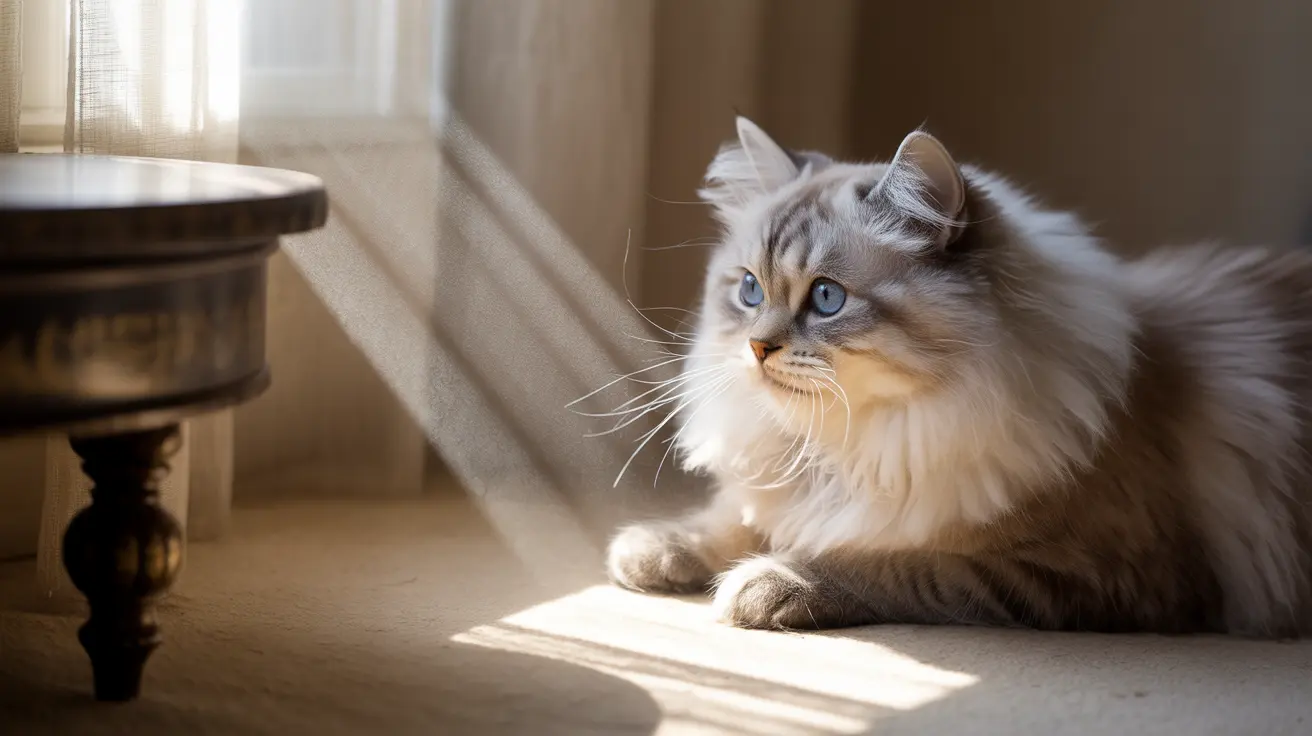The Extraordinary Sensory World of Cats
Cats possess sensory abilities that far surpass human perception. Their eyes are specially designed with a high concentration of rod cells, allowing them to detect even the slightest movements in low-light conditions. Additionally, cats can see ultraviolet light, opening up a whole new spectrum of visual information that's completely invisible to humans.
Their hearing is equally impressive, with the ability to detect frequencies up to 64,000 Hz – nearly triple what humans can hear. This means your cat might be focusing on sounds from within your walls, such as mice or insects, that are completely imperceptible to human ears.
Natural Hunting Instincts at Play
When cats stare intently at seemingly nothing, they're often engaging their natural predatory instincts. Even well-fed house cats retain their hunting programming, and this behavior can manifest as focused attention on tiny movements or sounds that escape our notice.
Dust particles floating in a sunbeam, the subtle vibration of electrical wiring in walls, or the movement of insects too small for human eyes to detect can all trigger this predatory focus. What appears as staring at nothing is actually your cat's hunting instincts in action.
Environmental Processing and Problem-Solving
Cats often use periods of intense focus to process their environment and solve spatial problems. When your cat appears to be staring into space, they might be:
- Analyzing potential paths to reach high places
- Processing new sounds or smells in their environment
- Investigating changes in their surroundings
- Contemplating their next move in play or exploration
When to Be Concerned About Staring Behavior
While most instances of cats staring at nothing are completely normal, there are times when this behavior might indicate underlying health issues. Watch for these warning signs:
- Excessive or unusually long periods of staring
- Staring accompanied by unusual vocalizations
- Disorientation or confusion after staring episodes
- Changes in normal behavior patterns
- Physical symptoms like twitching or drooling
Frequently Asked Questions
Why do cats often stare at walls or empty air as if they see something invisible?
Cats stare at walls or empty air because they're detecting subtle movements, sounds, or smells that humans can't perceive. Their superior sensory abilities allow them to notice tiny insects, hear sounds within walls, or pick up on UV light reflections that are invisible to us.
Can a cat staring at nothing be a sign of a health issue or cognitive dysfunction?
While most staring behavior is normal, persistent staring accompanied by confusion, disorientation, or other unusual symptoms might indicate cognitive dysfunction in older cats or other health issues. Consult a veterinarian if you notice concerning changes in your cat's behavior.
How do a cat's senses enable them to notice things humans cannot when they stare off into space?
Cats have significantly better night vision, can see UV light, hear frequencies up to three times higher than humans, and possess a sense of smell 14 times more sensitive than ours. These enhanced senses allow them to detect stimuli that are completely undetectable to humans.
When should I be concerned about my cat's staring behavior and seek veterinary advice?
Seek veterinary attention if your cat's staring is accompanied by symptoms like seizures, disorientation, behavioral changes, loss of appetite, or unusual physical movements. These could indicate underlying health issues requiring medical attention.
What does it mean when my cat stares intently but does not react to any visible stimuli?
When cats stare without visible reaction, they're likely processing sensory information, engaging in natural surveillance behavior, or focusing on subtle environmental changes. This behavior is typically normal and reflects their instinctive predatory nature.
Conclusion
The next time you catch your cat staring at nothing, remember that they're likely engaging with a world of sensory information that exists beyond human perception. While this behavior is usually completely normal and fascinating, staying attuned to any changes in your cat's staring patterns can help ensure their continued health and well-being.






